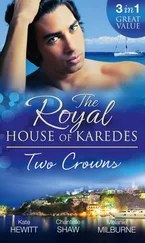He had his detractors. There seemed to him to be an abundance of miserable grey-faces whom he assumed had never known passion in their lives, who made it their business to hate everything about him. They were deeply suspicious. They discussed his sex life. They wrote articles for university magazines where they found fault with the tone of his voice, his beard and even the way he drank his coffee. They didn’t like his popularity, or the fact that it didn’t seem to be diminishing his ability to work. They were jealous of him, and his success made them uncomfortable because it reminded them of how often they had not followed their own dreams or cultivated principles worth sticking to. The universities were, it seemed to John, filled with stillness and loathing. He tried to shake it off, but it remained.
In the long months and years when John was working on the final draft of his book, How We Can Take Power Without Power Taking Us, he was consumed with the project and unable to relax. His mind was so full of his ideas that his body began to spasm and fidget. He found himself rubbing his hands and nodding his head furiously when he was alone. His whole frame would shake violently and he would clench his teeth and have no choice but to go with it. He would fit like this silently in toilet cubicles at train stations for five straight minutes. Then he would gather himself, stretch his tensed-up mouth, shake his fingers like they were wet, smooth his clothes down and step back out into the chaos of the platform. Dazed.
One clear September night after a long summer of touring, and a hard week back at the university, he attended a concert given by a friend of his, the famous cellist Marco Abbadelli, and felt calmer than he had in months. Marco and John had spent many hours discussing life and the point of the artistic temperament. The meaning of beauty. The language of music. They had once made love and it had been something wonderful and honest, but it had only happened the once and it was never spoken of again. They had huge affection for each other, and whenever Marco was in London they enjoyed nothing more than meeting up and drinking until dawn.
Paula Shogovitch had fallen in love with the idea of capturing moments when she was five years old and playing in the garden of her grandparents’ house. It was coming on for dusk and the lights were on inside. She was on her way back in, when she noticed through the window her two brothers, Ron and Rags, stealing sweeties from their grandma’s cupboard. There was something so perfect in the poise of their bodies, strained, listening for footsteps, ready to run. Something so familiar in being the younger sister, looking on while the elder brothers did things that they imagined she couldn’t understand. She began to look for moments like this. Moments that gave away so much. She started to find them everywhere. She learned to capture them. A couple fighting in a train carriage, a married woman walking with her grumpy husband, staring after a beautiful young man as he passed them at a crossing, a boy smiling in the middle of a fight, two women sneaking sips from a bottle at the theatre. There was an intimacy to Paula’s photos. Something so careful about the way she captured London people. Whether she knew it or not, she was doing something that hadn’t been done before. Photographs taken with so much love for their subjects that you felt like you were looking at pictures of relatives when you flicked through her images.
Paula was on the ascendancy. London was alive with beauty, talent, movement. And she was young and had a vision. She moved up in the world. Didn’t have to give anyone a feel of her tits. Didn’t have to pretend she was thick to appear unthreatening. She allowed herself to be herself, and people were charmed and impressed. And Paula Shogovitch had a job and her job was her calling and her calling was her love and her love was her job and she could pay her rent on time.
Paula’s favourite subject was Marco Abbadelli. Arguably the best photograph she ever took was her iconic shot of Marco, naked at his cello. People have since tried to stage similar photos, but the reason her photo worked so well was that it was real. They had been together, and in the final moments of their passion Marco had seemed to be singing. As they pulled themselves apart and lay there, resting, Marco had carried on with the melody, softly, on the out breath. Paula had reached for her camera. She was fascinated by photographs of men taken in the moments after lovemaking. She had been playing with apertures when Marco, in a state of intent calm, got up and walked across the bare floorboards for his cello. He opened the case, and began to play, no time for a chair, half standing, half crouching. Framed perfectly by the window that hung slightly open and the curtains billowing ferociously around him. She took the photo. It made her a star.
In the winter of 1985, Marco Abbadelli came to the end of a long European tour that culminated in his biggest ever London show at the Royal Festival Hall. To celebrate he hosted a late dinner at El Gran Toro, his favourite restaurant, not far from the concert hall, and was joined by his manager and a few of his closest London friends. They were seated at a long table in a private room in the exclusive basement of the restaurant. The back wall was lined with wine casks and barrels of fine Spanish sherry. The waiters made a big show of dipping their heads and bringing tastes from each cask over to Marco, who beckoned them close and spoke to them softly and allowed them to touch his hands when they gave him the glasses.
Among Marco’s friends that evening was the notable rock ’n’ roll political writer, John Darke, and the famous young photographer, Paula Shogovitch.
The moment Paula saw John she felt her throat constrict; the blood flowed thicker through her veins. He felt it in his hair follicles and in the beds of his fingernails. Something about her hurt him all over. The air was heavy between them. They ate at separate ends of the table and avoided each other’s eyes.
After the food had been eaten and the diners were drinking their coffee, Paula got up and moved her chair to the corner of the table, set it beside John’s and sat down. They said nothing, made no eye contact. They sat side by side, almost touching, completely ignoring one another.
The coffees and cognacs were finished. The guests were sitting back in their chairs, slapping their thighs at Marco’s anecdotes. Paula got up and, without even thinking, John followed her out of the dining room and into the Ladies. The air was thick with silence, which gave them both the feeling that the world had stopped for them. Bone white flowers dripped from red glass vases on plinths by floor-to-ceiling mirrors. Paintings of women in flamenco dresses fighting raging bulls hung by the hand dryers. John and Paula saw all of it and none of it. They undressed each other silently behind the locked door of a black cubicle and had their first sex in the toilets of El Gran Toro.
Paula and John were in love. They found each other’s work inspiring, enjoyed each other’s strangeness. They lived in a yellow-brick housing association block a few streets behind Lewisham Way. Their proud block was five storeys high, and looked out at three other identical blocks across a patchy green with a creaking see-saw and a couple of swings in the bottom corner. Their flat, number seventeen, had a little balcony where they planted honeysuckle and snapdragons and grew weed in big pots, and trained a climbing jasmine to tickle its way along the railings.
When John’s book eventually came out, politics was on the turn. It was 1989 and Thatcher was in government. John felt that the world was in its death throes, and the hearts of the British people were being pushed to breaking point.
Читать дальше












